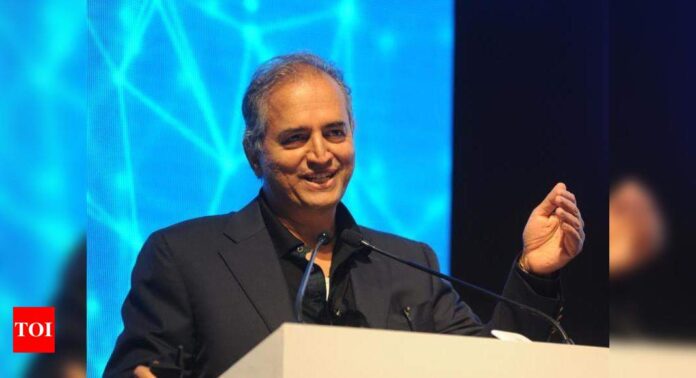Q. What made you apply for a health insurance licence?
A. Many years ago, my attempts to discuss the managed care model with the IRDAI were unresponsive. About six months ago, I revisited them to propose schemes under the sandbox model, presuming a license wouldn’t be granted. To my surprise, the executive director and chairman engaged, encouraging me to apply. I informed my team, recognising the IRDAI’s eagerness for change. Thanks to Chairman Debashish Panda and his team for their swift response, reaffirming the government’s commitment to change.
Q. How will claims in managed healthcare be different from regular health insurance?
A. Even the wealthiest man may not know where to seek help for chest pain at night. Our program offers app access for online consultations with nurses and doctors, ensuring prompt ambulance dispatch for conditions like painless strokes. Early treatment can reverse stroke effects. Our focus is on prevention, not just paying for care. We don’t deny coverage based on existing conditions but adjust premiums based on risk scoring.
Q. Is there enough infrastructure available to provide managed healthcare to all? Will you have partners?
A. Many global health insurance and private equity firms have approached us. However, we decline both, preferring a distinct model. We aim to avoid the constraints of past legacies and pursue innovative approaches. The IRDAI has allowed us to chart our course and report outcomes after one year.
We do not plan to have millions of enrolments from day one. We will start with a few thousand and gradually increase the coverage. We may start with a radius of 20 km around Electronic City and gradually increase the area.
`When the interests of the insurer, the hospital, and the patient are aligned, amazing things happen’
.
Q. Will people be able to afford managed healthcare?
A. Most of the patients I treat belong to the working class. When I inform a mother that her child requires an operation, the first question is not about the risk or the surgery itself but rather the cost. If I say it will amount to Rs 3 lakh, it is quite humiliating when the parent touches our feet. Eventually, they say, ‘I can contribute one lakh’. This is equal to several years’ premium. We perform approximately 15% of heart surgeries in India, and there is no incentive to play a preventive role. As an insurance company, the most effective means to save costs is by preventing heart attacks. When the interests of the insurer, the hospital, and the patient are aligned, amazing things happen.
Q. Will medical checks of applicants be mandatory?
A. As a healthcare provider, proper screening is crucial. In Bangalore, thousands of young women have early-stage breast cancer, often undiscovered due to a lack of preventive check-ups. Surgery is a minor and effective solution, but delayed action can make it incurable. Many young men with coronary artery disease or genetic heart issues remain unaware, risking sudden death during activities like marathons. In India, 30% of adults with hypertension avoid preventive check-ups. Our concept of health insurance is holistic health with managed care, where the objective is to prevent you from falling sick at an early stage.
Q. How will you screen all policyholders?
A. There are three reasons why youngsters avoid medical screenings: reluctance to visit a hospital, unwillingness to spend a whole day on tests, and concerns about the high costs. In our pilot at a Bengaluru tech park, we’ve established a comprehensive unit with echo, ultrasound, CT scan, and mammogram facilities. We commit to completing these tests within 60 minutes, and a refund is assured if it exceeds 90 minutes. We can offer the entire screening for Rs 4,900.
Q. How long will it take to launch, and what resources have you deployed?
A. We hope to come up by the end of February. Our team is already in place. Ravi Vishwanath is the overall head of managed health; the CEO designate, Sheela Anand, will report to Ravi. The service will be predominantly around our hospitals. We will also network with top hospitals with accreditation.
We have put in around Rs 150 crore and will start in Mysore and Bengaluru as a pilot. So far, health insurers have been financial intermediaries not involved with care. We will go for a detailed evaluation of the customer and have all their health records on our platform.




































